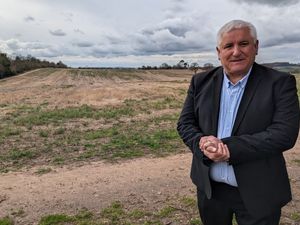Moderates question whether there is still a Labour Party worth fighting for
The leader of the Labour moderates has gone – prompting dismay from his supporters and celebration among the hard-left.

Tom Watson insists that his decision to stand down was "personal not political", but it happened against a backdrop of prolonged antagonism towards him from within.
It came as his close friend and former Labour colleague Ian Austin also bowed out, taking the extraordinary step of urging voters to back Boris Johnson in an effort to stop Jeremy Corbyn from winning the election.
Few of Mr Watson's allies saw his departure coming. He had been fully expected to defend the West Bromwich East seat he has held for 18 years, and had shown no indication that he was about to pull out.
But in the background, the signs were there. He was deeply hurt by the Momentum-backed effort to oust him from his deputy leader role at the party conference.
As the shadow cabinet gathered on the day the general election was called, Mr Watson was nowhere to be seen.
And at the official Labour campaign launch he cut a forlorn figure on the edge of proceedings, unable or perhaps unwilling to join in with the celebratory mood of his frontbench colleagues.

Mr Watson did not want an election. It came with the promise of a testing campaign against former Tory MP Harvey Proctor – furious at his role in the Carl Beech scandal – and firebrand George Galloway.
He wanted a 'people's vote', but was shouted down by Mr Corbyn in his attempts to direct Labour's Brexit policy.
The pair also clashed over anti-Semitism, with Mr Watson appalled by the party leadership's failure to properly address the issue. Again, his call for action would fall on deaf ears.
All of which makes his departing pledge to campaign all across the country for a Labour government seem odd to say the least.
Cathedrals
Many of his colleagues are devastated by his decision to quit – on one hand because they have lost a friend and a respected Labour campaigner, but also because they have lost their de facto leader.
"I am very sorry to see Tom go," said Pat McFadden, the parliamentary candidate for Wolverhampton South East and a long-time friend of Mr Watson's.
"I understand how difficult a decision this must have been for him.
WATCH: Ian Austin on why he's backing the Tories
"Political parties are a bit like cathedrals. They don’t just belong to the generation of today but rest upon the work of generations and achievements that have gone before.
"Labour has been around for over 100 years. It doesn’t belong to any one leader or group of supporters.
"There is a Labour tradition that is proud of what we did in Government, that believes in supporting public services in a responsible way, that supports strong defence and toughness on crime and terrorism.
"That’s the kind of Labour I believe in and I think people in my constituency understand that."
There is hope.
The controversial 'trigger ballot' process – which gives Labour members a choice to automatically reselect their MP as a candidate or trigger a selection process – failed to result in the mass deselection of moderates that many had predicted.
The PLP is dominated by 'New Labour', meaning many of those who are currently out on the campaign trail find themselves in a conflicted position.
All over the country, moderate Labour MPs want to get a simple message across as they hit the doorsteps: we are Labour, but not Corbyn.
They want to win their seats, but do not want the Labour Party to get into power under its current leadership. For some, this is the second election in a row where that has been the case.
Corbyn critics
Mr Austin took a different route. Believing the party he knew to be finished, he sacrificed his own political career because he believes a Corbyn government will cause untold damage to the country.
His call for voters to back the Tories has infuriated allies of the Labour leader.
Shadow Chancellor John McDonnell jibed that Mr Austin was "employed by the Tories" – seemingly referencing his role as a trade envoy to Israel, which is unpaid.
But the critics of Mr Corbyn are queuing up.

Another former Labour MP, John Woodcock, has echoed Mr Austin's comments, while this week's Jewish Chronicle ran a front page editorial calling Mr Corbyn an anti-Semite and pleading for the country to boycott Labour at the polls.
Back in March, Mr Watson launched the Future Britain Group, with the aim of halting the Labour split and providing a home for party moderates. It was attended by around one third of Labour MPs.
But with Mr Watson gone, many of them are now asking whether there is still a Labour Party worth fighting for.





